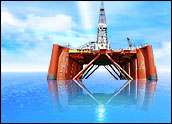
A recent New York Times story about a conference held in Riyadh, Saudi Arabia, chilled me to the bone. The headline supplies all the reasons: “Saudi Arabia’s Grand Plan to Move Beyond Oil: Big Goals, Bigger Hurdles.”
At first glance, this doesn’t ring any CRM bells, but maybe it should. Why would any business or business-state contemplate moving out of its sweet spot if it weren’t required to? What happens to the customers that have become dependent? That’s the point.
Beyond oil means running out — as in we won’t be in that business in so many years because there will be nothing left to pump.
Peak Oil Snapshot
If you haven’t been following the oil markets or the somewhat arcane discussion of peak oil, here’s a brief primer: In the U.S., oil discovery peaked in the 1960s, and it has been declining ever since.
The recent revolution in hydraulic fracturing has brought more oil to market, but it’s been from old wells that didn’t have much left. This is called “secondary recovery,” and it’s like wringing out a damp sponge — you usually can get a few more drops.
Globally, oil discovery peaked in the 1970s, and exploration has not yielded another barrel since 2003. We’re essentially using up the reserves discovered back in the day, and as with any finite entity, it’s beginning to run out. There’s lots of scholarly work on the subject that you can find online, so I am not going to belabor the point.
However, as additional evidence, both GM and Ford recently announced elaborate plans to bring electric vehicles to market within the next few years. Why would GM and Ford get out of the internal combustion car market if they didn’t have to?
Fossil Carbon
As luck would have it, if — or more likely when — we stop burning fossil fuels, we’ll be able to rely on electricity derived from a variety of sources, including solar, wind and something you might not be aware of, geothermal, which I encourage you to look into. However, there’s a lot of work to be done and investment to be made before electricity can take over the workload that fossil fuels currently support.
The sooner we stop burning fossil fuels, the better off we’ll be. You might think this means curtailing pollution, which of course will happen — but more importantly, fossil carbon is the basis or feedstock of hundreds of products that make modern life possible. From fertilizers to rubber and synthetics like nylon, to carbon fibers and plastics and much more, we depend on starter materials derived from fossil carbon.
For instance, did you know that an average car tire requires seven gallons of petroleum to manufacture? It takes five gallons to make the rubber and another two gallons to drive the manufacturing process.
Did you know that coal is the source of more than 500 pharmaceuticals and of the original dye that makes blue jeans blue? The oil and other fossil fuels left in the ground now are too valuable to burn.
Give credit to the Saudis for at least telegraphing their oil depletion issue to the marketplace. Other countries are in similar positions and have said nothing. That’s not exactly a best practice for dealing with a global customer base that has grown dependent on your product.
Ticking Clock
How long before we run out is speculative. Proven reserves typically are numbers that few nations share with the world, so there is ambiguity in almost any description of oil supply compared with the consumption data that many governments and oil companies keep.
Even an entry in Wikipedia listing countries and their reserves offers this caveat: “Some statistics on this page are disputed and controversial. Different sources (OPEC, CIA World Factbook, oil companies) give different figures.”
Even the CIA doesn’t know how much oil is left in the ground, but the 2014 BP annual report pegged it at a 53-year supply, not taking into account demand increase, which currently runs at about 2 percent per year.
We would do well to follow the Saudis’ lead — at least by acknowledging that a problem with peak oil exists. With that, it will be possible to have an overdue conversation about how to organize our lives on this tiny planet, and to plan for a time at mid-century when Earth will host an additional 2.5 billion people.
Without a new energy infrastructure, it’s hard to say how we’ll be able to grow enough food or provide fresh water to this mass of people.























































Social CRM
See all Social CRM